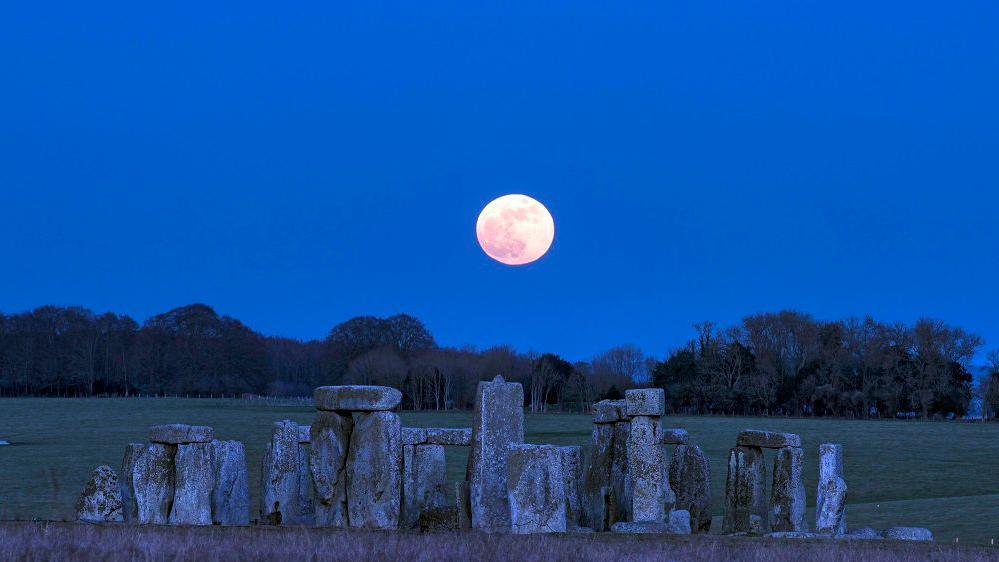Stonehenge site may have 'unified' ancient Britain
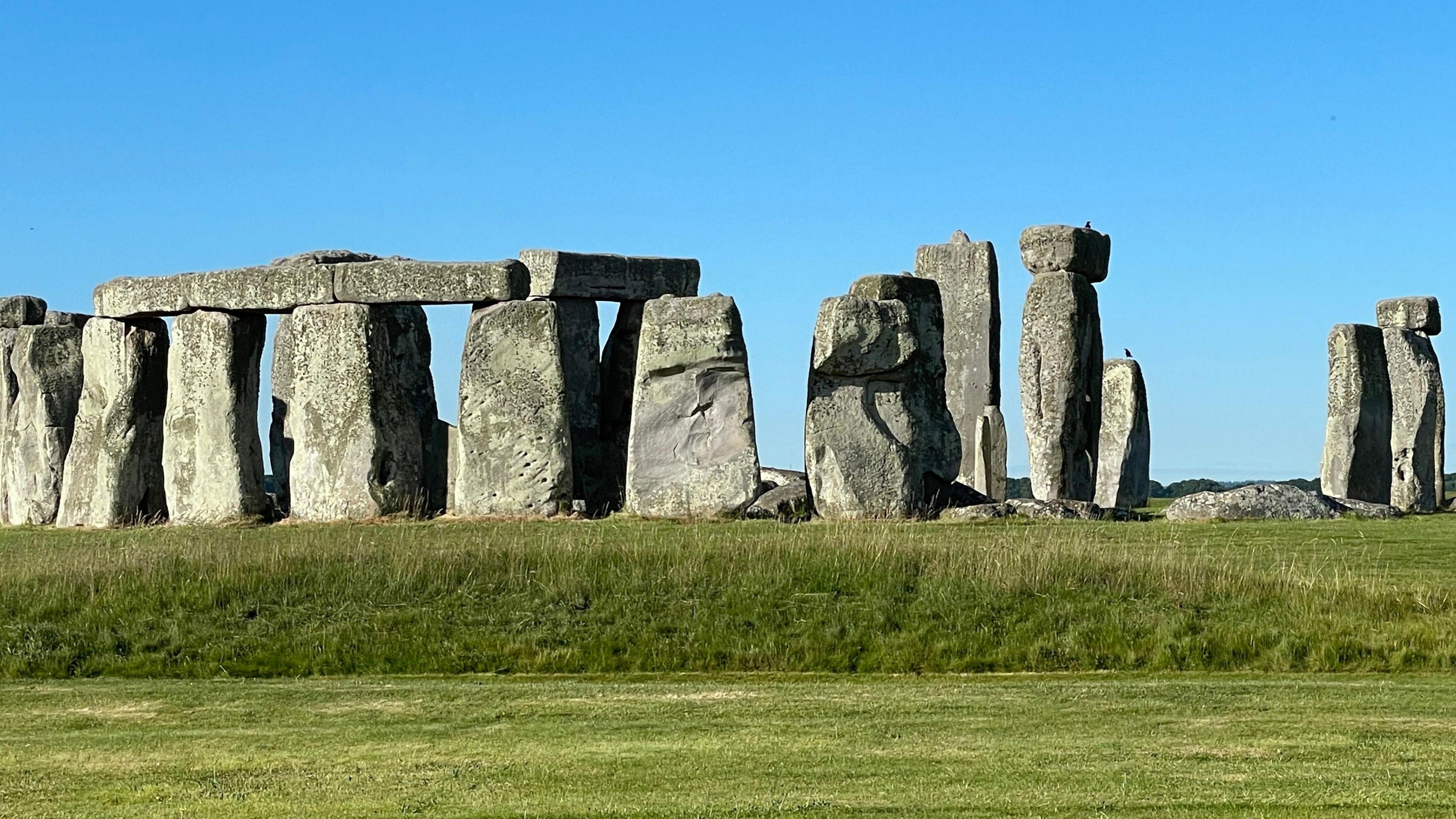
Stonehenge may be showing how connected people were to each other in ancient Britain
- Published
Stonehenge may have been built to unify people in ancient Britain, according to new research.
It comes after evidence shows one of the stones came to the monument in Wiltshire from as far away as north east Scotland.
The lead author of the research - Prof Mike Parker Pearson from the UCL Institute of Archaeology - explained the stones coming from different places in the country makes it "unique among over 900 stone circles in Britain".
Published in Archaeology International, it also points out the 43 bluestones at Stonehenge came from 140 miles (225km) away in Wales.
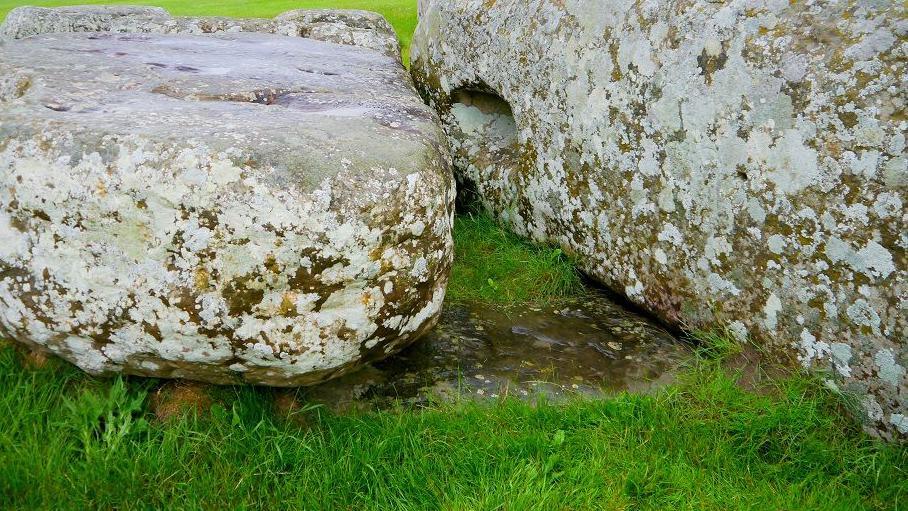
The Altar Stone, now mostly buried, has been analysed and came from Scotland
Prof Parker Pearson said: "We've known for a while that people came from many different parts of Britain with their pigs and cattle to feast at Durrington Walls, and nearly half the people buried at Stonehenge had lived somewhere other than Salisbury Plain.
"The similarities in architecture and material culture between the Stonehenge area and northern Scotland now make more sense."
It was reported earlier this year that the six-tonne altar stone originated in Scotland, possibly arriving about 2500BC, the time Stonehenge was remodelled from its original form.
Co-author Prof Richard Bevins, from Aberystwyth University, looked into the geology: "Our research is like forensic science. We are a small team of earth scientists, each bringing their own area of expertise; it is this combination of skills that has allowed us to identify the sources of the bluestones, and now the Altar Stone."
It is similar in size and placement to the large, horizontal stones in the stone circles of northeast Scotland, where it originated.
These sort of circles are only found in that part of Scotland, so researchers think there may have been close ties between the two areas.
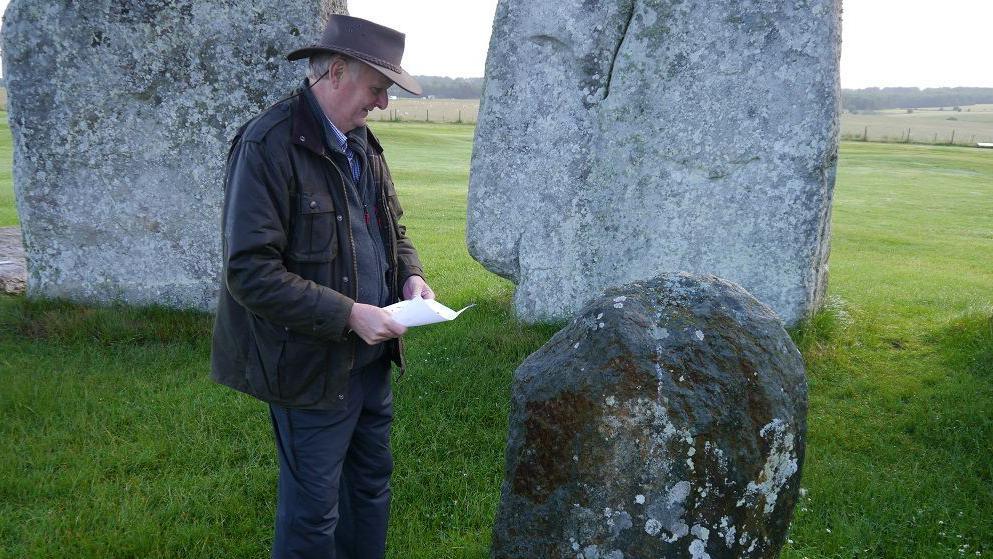
Prof Richard Bevins has been part of the geological side of the research
The Welsh bluestones are believed to have arrived for the first construction of Stonehenge, but for the second one there was more contact between Britain and Europe.
There are a lot of ideas on Stonehenge: a religious temple, an ancient observatory and a solar calendar, and this new research adds a political side.
Get in touch
Tell us which stories we should cover in Wiltshire
Follow BBC Wiltshire on Facebook, external, X, external and Instagram, external. Send your story ideas to us on email or via WhatsApp on 0800 313 4630.
- Published14 August 2024
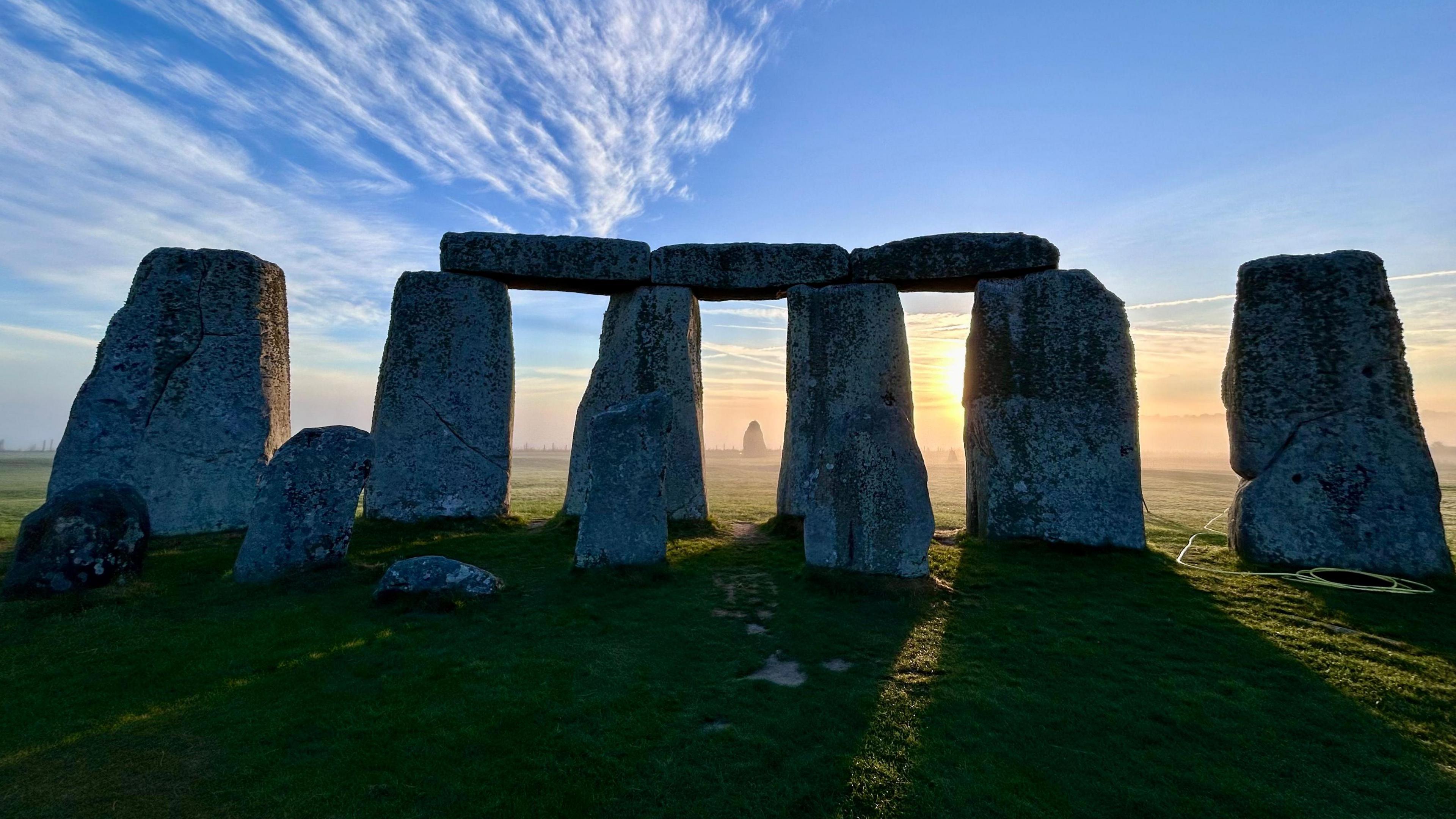
- Published6 September 2024
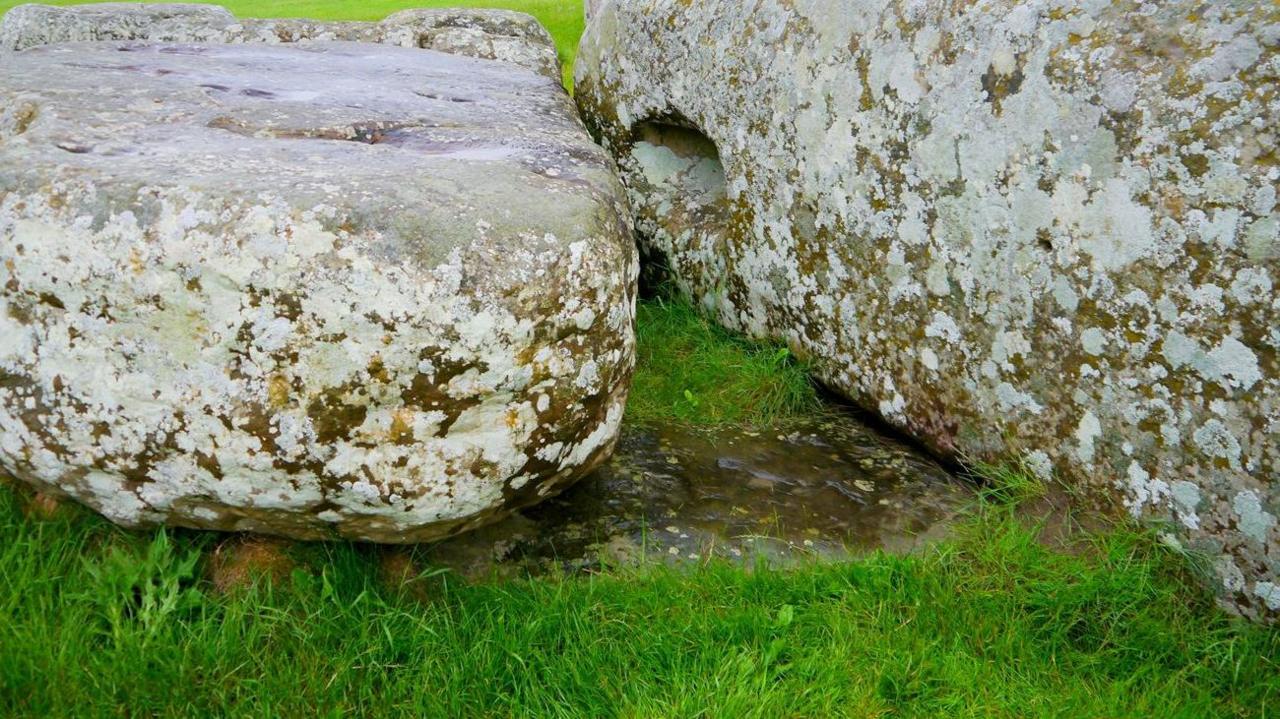
- Published15 April 2024
